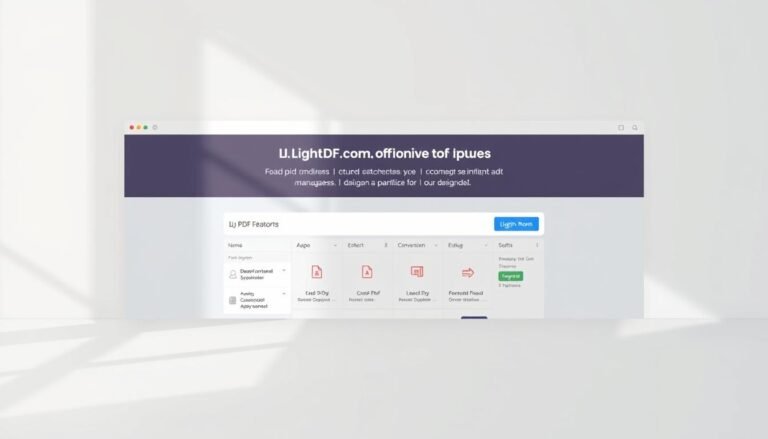If your website isn’t getting the visitors it should, it’s not the content. It’s your SEO strategy. Today, we start a journey to unlock your SEO potential with good keyword research. A key tool in this is a keyword finder, which boosts your website’s traffic.
By learning to use this tool well, you can set your SEO on the right path. This will make your website more visible in the busy online world.

Key Takeaways
- SEO strategy is crucial for attracting web traffic.
- A keyword finder is a vital tool for identifying measurement opportunities.
- Understanding keyword research can unlock SEO potential.
- Improved visibility leads to enhanced web traffic and SEO success.
- Effective SEO is about strategies that resonate with user intent.
- Utilizing data from keyword finders can streamline your content creation.
The Importance of SEO in Today’s Digital Landscape
In today’s world, being online is key to success. SEO is vital for businesses. It helps them show up on search engines, making it easier for people to find them. Good SEO lets brands reach the right people.
Understanding SEO Basics
SEO means making a website better for search engines. It includes using the right keywords, making the site fast, and making it easy to use. Knowing these basics is important for anyone wanting to be seen online.
Why SEO Matters for Businesses
For businesses, SEO is a must. It helps them be seen online, get more visitors, and sell more. Since most people use search engines, SEO is not just nice to have. It builds trust and makes a brand known. With good SEO, companies can stand out in a crowded market.

What Makes a Strong SEO Strategy?
Creating a strong SEO strategy means knowing key parts. Each part is important for being seen and engaging online. By focusing on these parts, businesses can grow their online presence.
Key Components of SEO Success
Understanding several key parts is crucial. _Keyword research_ is very important. It helps make content that people want to see. Good content keeps people interested.
Technical SEO makes sure search engines can find your site. These parts together make a strong SEO plan. This plan can keep up with new trends.
How to Create Your SEO Roadmap
Making a good SEO roadmap starts with knowing your goals and who you want to reach. First, decide what you want to achieve with SEO. Then, make a plan with important steps.
Make sure to check and update your plan often. This keeps your SEO strategy fresh and effective.

Keyword Research: The Foundation of SEO
Keyword research is key to a good SEO plan. It helps businesses find the right words to attract customers. These words connect what people search for with what companies offer.
The Role of Keywords in Search Rankings
Keywords are very important for how a website shows up in search results. Search engines look at keywords to see if a page is good and true. Using the right keywords can make a website more visible, leading to more visitors.
How to Identify SEO Opportunities with Keywords
Finding SEO chances with keywords takes a careful look. Tools like Google Keyword Planner show popular searches and how often they happen. Choosing keywords that match what people want can bring in more visitors. Looking at what competitors use can also help find new ways to improve.
Utilizing a Keyword Finder for Enhanced SEO
A keyword finder is key for better online visibility. It makes finding the right keywords easy. This helps your content match what people are searching for.
Choosing the right tool is important. Look for one with good analytics and easy use. It should also be affordable. A good tool helps you pick the best keywords for SEO.
Best Practices for Effective Keyword Research
Good keyword research is key for a strong SEO plan. Knowing the difference between long-tail and short-tail keywords is important. It helps you plan better.
Looking at what competitors do can help you find good keywords. Understanding what users want can guide your content.
Long-Tail vs Short-Tail Keywords
Long-tail keywords are longer and more specific. They might not get as many searches but can lead to more sales. Short-tail keywords are shorter and get more searches but are harder to rank.
Using both types is smart. It helps you reach more people and get better results.
Leveraging Competitor Analysis for Keywords
Looking at what competitors do is very helpful. It shows you keywords they use that might work for you too. By checking their content and links, you can find new keywords.
It also helps you make better content. You can target the same audience without competing too much.
Understanding Keyword Intent
Knowing why people search for things is crucial. They might want information, to buy something, or need help. Making content that matches their needs is important.
This way, you make users happy. They are more likely to stay and might even buy from you.
Top Keyword Finder Tools on the Market
Using good keyword finder tools is key for better SEO. You can find many tools, from free to paid ones. Knowing what each tool does best helps you choose wisely.
Comparison of Free vs Paid Keyword Finder Tools
Free tools are good for beginners. They give basic info and a few keywords. Paid tools offer more, like deep data and special features.
It’s important to pick the right tool for you. Think about what you need most.
User Reviews of Popular Keyword Tools
User feedback is very helpful. It shows what each tool is like. People like the detailed info from paid tools and the easy use of free ones.
Reading what others say helps you choose the best tool for your needs.
Gradually Improving SEO with a Keyword Search Tool
Using a keyword search tool is key for better search engine results. It helps you keep an eye on how well your keywords work. You can see what’s good and what needs work.
By using keyword analytics, you can make your content match what people are looking for. This makes your site more relevant and useful.
How to Track Your Keyword Performance
Tracking your keywords well means using tools that check traffic, rankings, and how people interact with your site. These tools give you insights into which keywords bring visitors and which don’t.
This info helps you make smart choices to boost your SEO. It’s all about using data to improve your site’s performance.
Adjusting Strategies Based on Keyword Analytics
Changing your approach based on keyword data can really help. Seeing how keywords perform can show you what’s popular and what’s not.
Updating your content to match these trends keeps your site fresh and relevant. This keeps your SEO efforts working well, always getting better.
Advanced Techniques for Keyword Optimization
In the world of SEO, using advanced keyword techniques is key. This helps websites show up more online. One good way is to group keywords smartly to make content better.
This makes websites clearer and more relevant. It also helps with search rankings and user experience.
Grouping Keywords for Content Structuring
Keyword optimization means grouping keywords around main themes. This makes content more organized and easy for search engines to get. It helps your site be seen as an expert in a topic.
It also makes it easier for visitors to find what they need. This makes your site more useful and user-friendly.
Utilizing Semantic Search to Enhance Visibility
Now, semantic search is important for being seen online. It’s about understanding what users really want. By using keywords that match what users are looking for, websites can meet their needs better.
This attracts more visitors and keeps them longer. It builds loyalty to your site.
Measuring SEO Success: Metrics to Track
To understand SEO success, you need to know what to watch. Certain SEO metrics help businesses see if their plans are working. These metrics are like check points to see if you’re on the right path.
Key Performance Indicators (KPIs) for SEO
It’s important to track key performance indicators for SEO. Look at things like how many people visit your site, how long they stay, and if they do what you want them to. These numbers tell you if your SEO is working well.
Also, keep an eye on your site’s ranking in search results and how strong your domain is. This helps you see if you’re getting better or worse over time.
Tools for SEO Metrics Analysis
There are many tools to help you track your SEO. Google Analytics gives you lots of info about your site’s performance and how people use it. SEMrush and Moz offer more specific tools for keywords and backlinks.
Using these tools can help your team make your SEO better. It’s like having a guide to help you reach your goals.
Conclusion
Mastering SEO is key in today’s digital world. This article showed how a keyword finder is vital. It helps businesses get more website visitors and the right audience.
When you start to improve your SEO, remember every step is important. From finding the right keywords to tracking results, each part matters. Using these tips can make your site rank better and help your digital marketing.
Start using these tips to grow your brand. Learning and adapting are important for a strong online presence. Your hard work can bring more traffic and engagement to your site.
FAQ
What is a keyword finder tool?
A keyword finder tool helps find the right words for your content. It shows how often people search for them. This is key for better SEO.
Why is keyword research important for SEO?
A: Keyword research finds what people are looking for. By using these keywords, you can get more visitors. This helps your business grow.
What features should I look for in a keyword research tool?
Look for tools that are easy to use. They should analyze keywords well and show competition. Google Keyword Planner and Ahrefs are good choices.
How do I choose between free and paid keyword finder tools?
Free tools are good for beginners. But, paid keyword finder tools have more data. Think about what you need for your SEO.
How can I improve my keyword research process?
Use competitor analysis and semantic search. Also, keep an eye on how keywords perform. This helps find better keywords.
What are long-tail and short-tail keywords?
A: Long-tail keywords are specific phrases. Short-tail keywords are broader. Using both is key for SEO.
What is semantic search, and how does it relate to keywords?
A: Semantic search understands what you mean in your search. It makes your content more relevant. This helps with keyword visibility.
How do keyword analytics enhance my SEO efforts?
A: Keyword analytics shows how well your keywords work. It helps you make your SEO better. This way, you can find the best keywords for your content.
Which keyword finder tools are considered the best?
A: SEMrush, Moz, and Ubersuggest are top choices. Each has special features. Pick the one that fits your SEO needs.









